What happened on Day 126 of the war?
Biden gives Israel 45 days to submit report on international law violations or lose military aid • IDF strikes Hezbollah rocket launch sites in Lebanon
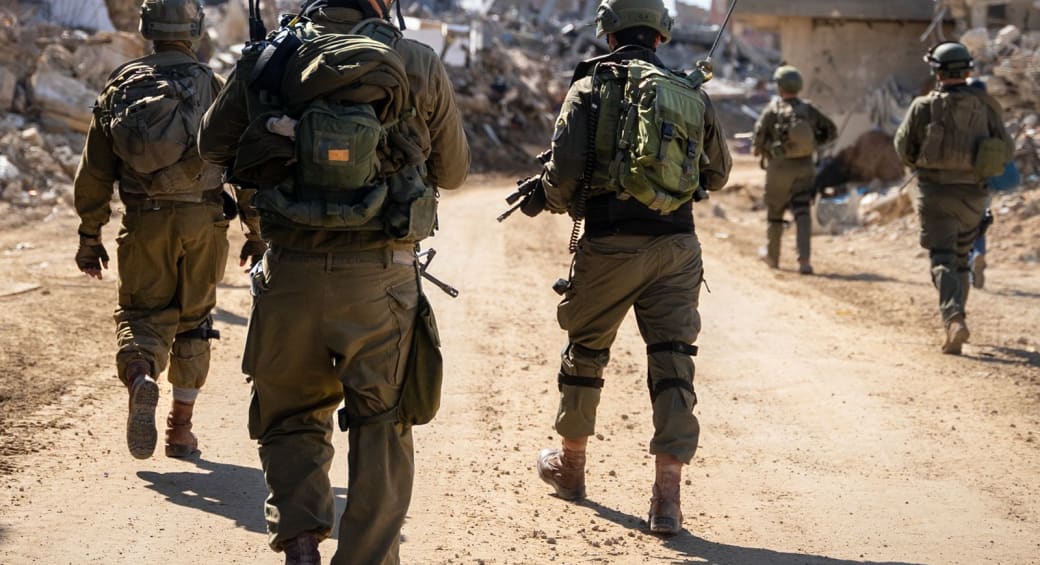

Netanyahu orders plan for evacuation and military action in Gaza’s Rafah
It is impossible to achieve the goal of the war without eliminating Hamas, and by leaving four Hamas battalions in Rafah," the Prime Minister's Office stated..
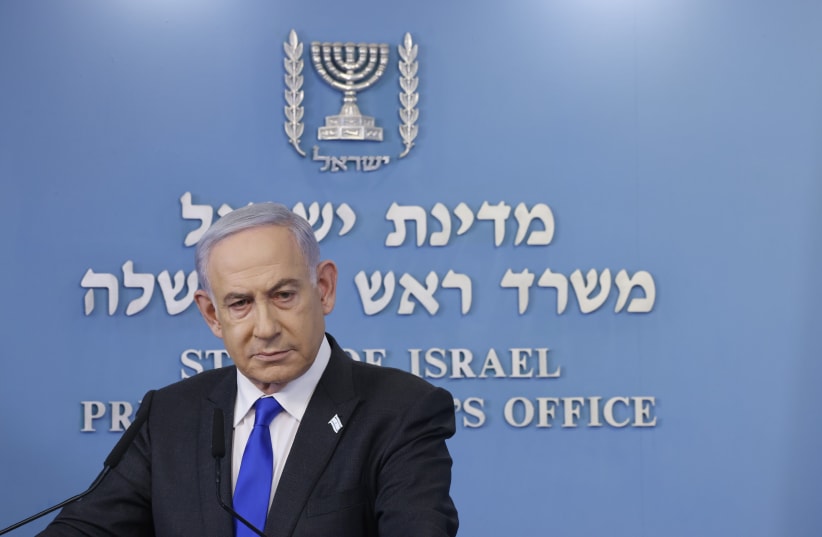
Prime Minister Benjamin Netanyahu has directed the IDF and the defense establishment to bring to the war cabinet a plan for both the evacuation of civilians in the south Gaza city of Rafah and the neutralization of the four Hamas battalions therein, the Prime Minister’s Office stated on Friday.
Hamas cannot be defeated with four battalions remaining in Rafah
It is impossible to achieve the goal of the war without eliminating Hamas, and by leaving four Hamas battalions in Rafah," the statement noted. "On the contrary, it is clear that intense activity in Rafah requires that civilians evacuate the areas of combat."
The Prime Minister's Office:
— Prime Minister of Israel (@IsraeliPM) February 9, 2024
It is impossible to achieve the goal of the war without eliminating Hamas, and by leaving four Hamas battalions in Rafah.
On the contrary, it is clear that intense activity in Rafah requires that civilians evacuate the areas of combat.
"Therefore," the statement continued, "Prime Minister Benjamin Netanyahu has ordered the IDF and the security establishment to submit to the Cabinet a combined plan for evacuating the population and destroying the battalions."
Therefore, Prime Minister Benjamin Netanyahu has ordered the IDF and the security establishment to submit to the Cabinet a combined plan for evacuating the population and destroying the battalions.
— Prime Minister of Israel (@IsraeliPM) February 9, 2024
Go to the full article >>
Detect and destroy: The IDF unit protecting Israel from rockets
The unit uses radar and other technology to detect all the missile threats to Israel, define their type, identify where they are heading, and help destroy them.
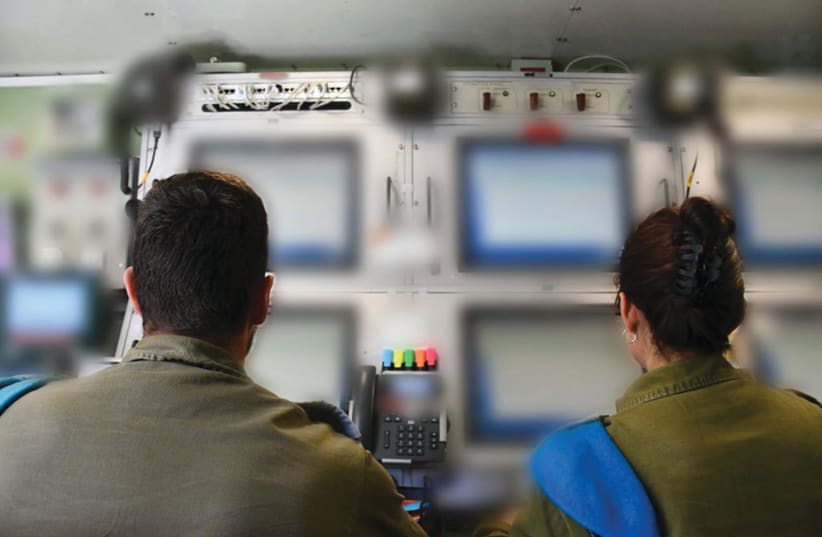
When rockets are fired at Israel by terrorist groups such as Hamas, the launches are detected, and the sound of sirens sends Israelis running to shelters. Since the war in Gaza began, more than 10,000 rockets have been fired at Israel at an unprecedented rate. During the first hours of October 7, thousands of rockets blanketed southern and central Israel. While rocket fire has been significantly reduced by the IDF’s operations in Gaza, the threat remains.
One of the IDF’s units that plays a role in detecting rockets and helping to determine from where they are launched, so that the source can be destroyed, is the 611th Battalion of the 282nd Fire Brigade. The Jerusalem Post spoke to the commander and another officer of this unique and important unit that uses radar and other technology to help Israel respond to threats in Gaza or on other fronts. This group of soldiers plays a key role in the war effort.
The unit commander, Lt.-Col. B., whose full name is withheld for security reasons, describes his small force as a “close-knit unit.” It guards and protects Israel and provides important “hits on the enemy,” he says. The unit helps to correct Israel’s artillery fire, increasing its accuracy, thus providing the precision to defend against threats and to aid operations in Gaza.
“All the artillery shot in Gaza was exactly because of our unit,” he says.
It fills the commander with pride to discuss how the unit is able to use its radar technology and other assets to spot missiles being launched by the enemy, give soldiers real-time warnings to reach shelters, and provide coordinates so that fire can be directed against the enemy.
The soldiers in this war are motivated to defeat and destroy Hamas.
“We know if they stay, that they will kill us and do the same thing they did [on October 7]. The whole world is looking at what we do right now, and they are looking to see that light will defeat the evil and [overcome] the dark[ness].”
Go to the full article >>Kibbutz Be'eri to clear out ruins of buildings destroyed by Hamas terrorists
This decision will be one of the many initiatives set to take place in the overall comprehensive plan that has been created for the Kibbutz following the destruction caused by the October 7 attack.
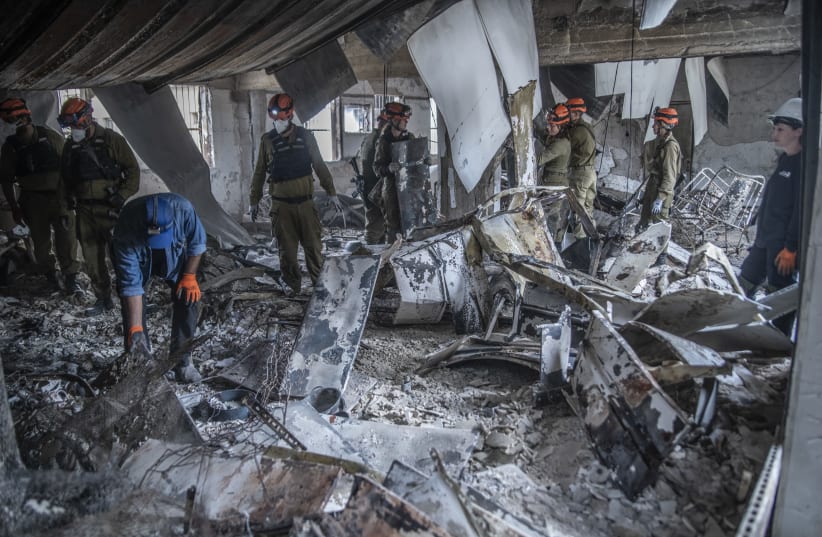
Kibbutz Be'eri announced on Thursday that they will begin to clear out the ruins of the Ashlim neighborhood, a neighborhood that was devastatingly affected by the Hamas attack that took place on October 7.
This decision will be one of the many initiatives set to take place in the overall comprehensive plan that has been created for the kibbutz following the destruction caused by the attack.
The kibbutz's initiative to clear out the ruins will be carried out in cooperation with the Tekuma Authority and the Defense Ministry.
Rebuilding in the aftermath of destruction
The Tekuma Authority was established at the start of the Israel-Hamas war by Israel's government under the initiative of Prime Minister Benjamin Netanyahu.
"We are building and investing in our communities. In the area adjacent to the Gaza Strip, at the start of the war, we established the 'Tekuma Authority.' We provided a massive budget to rebuild the communities and to ensure that nobody will be left behind," said Netanyahu in a statement released by the Prime Minister's Office.
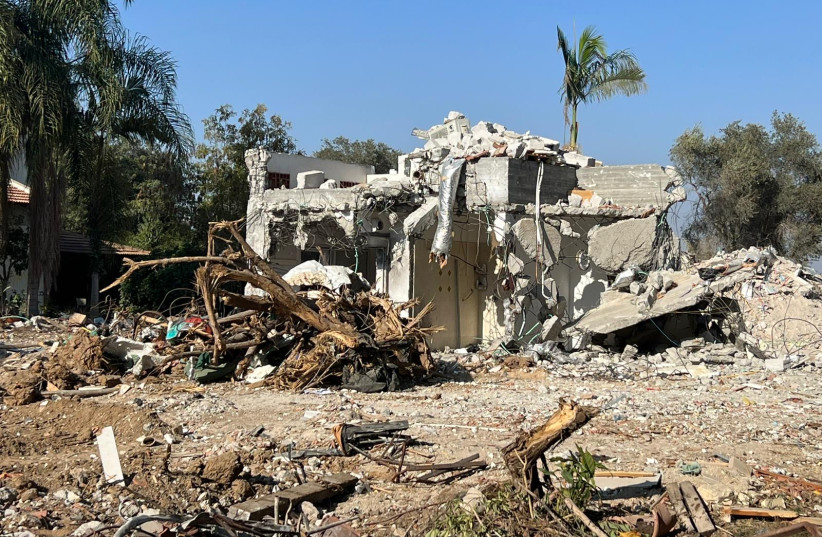
"We are engaged not just in rebuilding the cities, the rural communities, and the local and regional councils, but that they will flourish and prosper for generations and surpass what was," Netanyahu added.
Following the October 7 attack in Kibbutz Be'eri, residents were evacuated primarily to the area of the Dead Sea. The goal is to allow their return to safe housing in the Kibbutz as soon as possible.
This is not the first initiative in the attempt to rebuild the Kibbutz. Following the attack, teams of experts and volunteers have been working on its restoration daily. It is estimated that at least half of the kibbutz's buildings were burned to the ground.
According to Amit Solvy, the economic chairman of Kibbutz Be’eri, the estimated costs of repair would be as high as NIS 600 million ($159 million).
Go to the full article >>Suspicious object intercepted over Haifa
A suspicious object was intercepted over Haifa on Friday morning, according to initial reports, with local residents reporting hearing an explosion in the area.
No siren was activated at the time.
Go to the full article >>Over 350 bodies brought from Gaza to Israel to check for hostage remains
It is unclear if any hostages were found among the bodies.

Over 350 bodies have been brought from Gaza to Israel since the start of the war to be checked to see if they were the remains of Israeli hostages, KAN Reshet Bet radio reported on Friday.
The bodies were brought to Israel's National Center of Forensic Medicine in Abu Kabir. The IDF had announced earlier in the war that it had taken bodies out of Gaza in an attempt to find the bodies of hostages.
Bodies that were found to not be those of hostages were returned to Gaza.
In early January, footage from Gaza showed the IDF exhuming bodies from a cemetery in southern Gaza, with the IDF telling NBC News that the "IDF conducts precise hostage rescue operations in the specific locations where information indicates that the bodies of hostages may be located."
“The hostage identification process, conducted at a secure and alternative location, ensures optimal professional conditions and respect for the deceased. Bodies determined not to be those of hostages are returned with dignity and respect,” added the IDF.
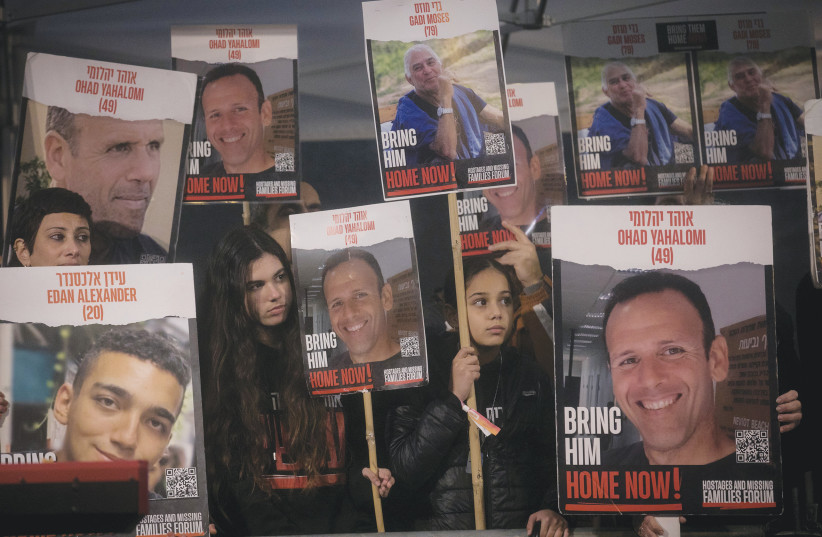
It is unclear if any hostages were found among the exhumed bodies.
At least 30 of the remaining hostages have been killed
Earlier this week, The New York Times reported that at least 30 of the remaining 136 hostages captured by Hamas on October 7 have been killed, with Israeli intelligence assessing unconfirmed information that at least 20 other hostages may have been killed as well.
The Hostages and Missing Families Forum stated after the report was published that the official number provided to them is that 31 of the 136 hostages have been confirmed as killed.
Over 240 hostages were kidnapped by Hamas during the October 7 massacre. In November, a little over 100 hostages were released as part of a ceasefire agreement, including 81 Israelis.
Go to the full article >>Hostage expert explains why Israel’s hostage crisis is uniquely challenging
Genser is proposing a new multilateral approach to fighting hostage-taking, a pact that would pledge signatories to take collective action against hostage-taking countries.
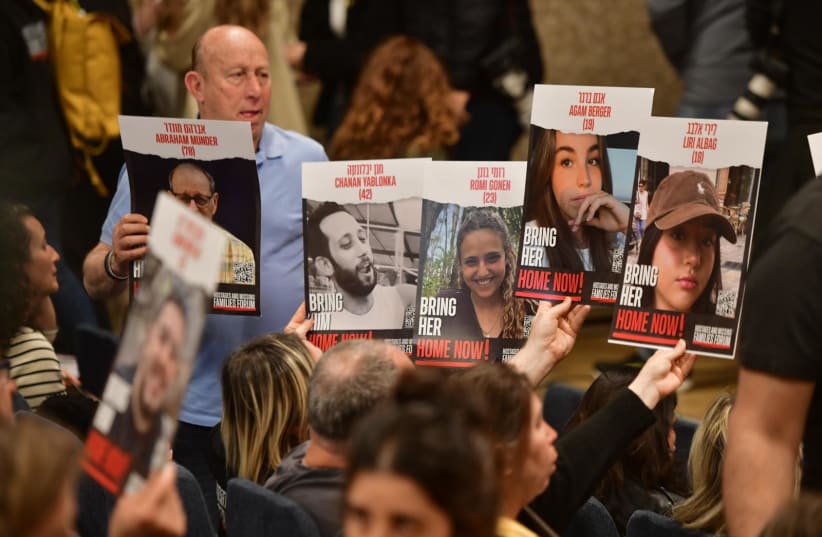
Jared Genser, a Washington, DC-based international human rights lawyer, has extracted hostages and political prisoners from some of the world’s worst dictatorships — usually in one-off deals following years of negotiation and on a rare occasion involving large sums of money.
But he’s concerned that piecemeal dealmaking with rogue actors encourages more kidnappings.
So, Genser is proposing a new multilateral approach to fighting hostage-taking by nations like Iran, Russia, China, Venezuela, and Syria: a pact, like Article 5 of the NATO treaty, that would pledge signatories to taken collective action, including targeted sanctions and diplomatic pressure, against hostage-taking countries.
“The only way you can disrupt hostage taking is to create dramatically draconian disincentives — up front and in advance,” said Genser, 51. “Once a hostage has been taken, it’s too late.”
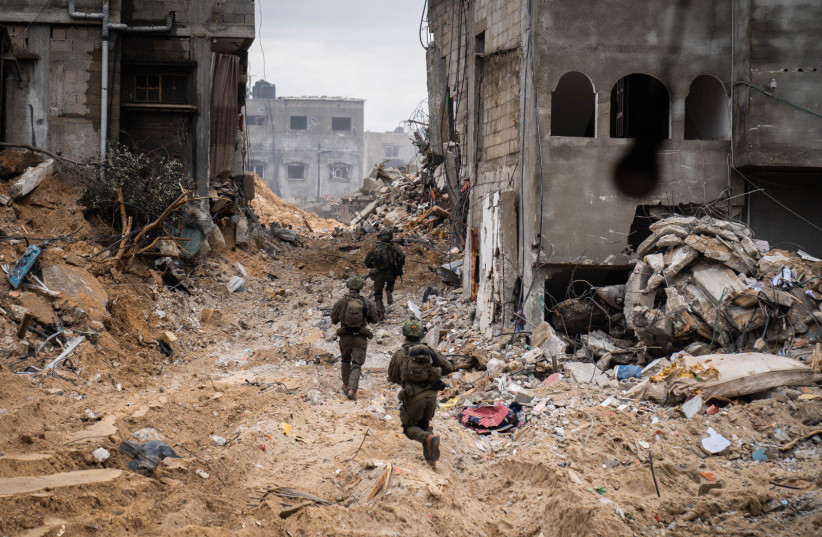
Genser’s insights about hostage dilemmas are particularly salient given Israel’s current predicament.
More than 230 hostages from Israel were taken captive into Gaza during Hamas’s October 7 attack, and over 130 are still being held following hostage releases in November. While Genser is not involved in the efforts to free them, his assessment is that Israel’s hostage situation is much more complicated than the state-sponsored extortion with which Genser regularly deals.
War in Gaza 'overshadows everything'
For one thing, Gaza is an active war zone. Additionally, the number of Israeli captives is tremendously high; some are presumed dead and those still alive likely are being moved from place to place. On top of it all, dealing with non-state actors such as Hamas is very different from dealing with states, according to Genser.
“You don’t have the same levers or capabilities to influence their behavior,” Genser said. With the fighting in Gaza “dramatically overshadowing everything,” he added, it’s “difficult to maintain a focus on the need to recover the hostages.”
Some things remain true, however, whether the abductor is Hamas or Iran, said Genser, now managing director of the public-affairs law firm Perseus Strategies.
“Rogue nations must be convinced that they will face severe consequences” for hostage-taking, Genser wrote in The Wall Street Journal in an opinion piece detailing his argument for a multilateral approach to fighting hostage-taking.
“If there are 50, 60, 70 countries threatening disproportionate consequences,” Genser said, rogue nations may conclude, “Well, maybe I need to move to a different strategy.’”
As things stand, Hamas calculated that it had much to gain from taking captives. In 2011, Israel freed more than 1,000 security prisoners in exchange for one Hamas-held captive, Israeli soldier Gilad Shalit. Many, including Genser, believe that deal incentivized Hamas to take more hostages.
Genser has ample experience dealing with Islamist extremists.
Last September, Genser helped free a US citizen held for years in Iran’s notorious Evin Prison: Siamak Namazi (his father, Baquer Namazi, was also held hostage and freed in 2022). The son, an international business consultant from a prominent family in Shiraz, Iran, was jailed in 2014. His father, who had been living abroad, was lured back to Iran in 2016 with a promise to see his son and then was imprisoned, too.
Over the course of more than 20 years, Genser has helped free 341 political prisoners, and he has been referred to by The New York Times as “The Extractor” for his success in liberating political prisoners.
Genser represents most of these clients pro bono and with the help of Freedom Now, the human rights advocacy group he established two decades ago to advocate for prisoners of conscience. Freedom Now takes up their cases at the UN Human Rights Commission, gives them legal support, and advocates on their behalf in the press. Among the famous political prisoners on whose behalf Freedom Now has worked is Chinese democracy activist and Nobel Peace laureate Liu Xiaobo.
In 2010, Genser was honored by The Charles Bronfman Prize for his work to free prisoners of conscience worldwide. The Prize was established in 2004 by the children of Canadian philanthropist Charles Bronfman — Ellen Bronfman Hauptman and Stephen Bronfman together with their spouses Andrew Hauptman and Claudia Blondin Bronfman — and is given to a Jewish humanitarian under the age of 50 whose work is grounded in Jewish values and benefits humanity universally.
Last September, Genser’s firm partnered with the REFORM Alliance, which works to change laws, systems and culture around probation and parole, to support the government of Costa Rica in presenting a joint statement from 74 countries on the importance of social reintegration of the formerly incarcerated as a matter of international human rights. The idea is to create global standards around measures needed to reintegrate formerly incarcerated individuals into society — including help with jobs, education, healthcare and housing. Interestingly, Genser said, both Israel and Palestine signed onto that statement.
Looking ahead, Genser said, Israel’s government has some tough decisions to make given the failure to date of its military campaign to free the hostages.
“At the end of the day, you need to cut a deal directly with the terrorists,” he said. “That means having to make very, very difficult and unpalatable choices.”
This story was sponsored by and produced in partnership with The Charles Bronfman Prize, an annual prize presented to a humanitarian whose innovative work fueled by their Jewish values has significantly improved the world. This article was produced by JTA’s native content team.
Go to the full article >>Hamas's Yahya Sinwar set for 'Arafat-style' exile from Gaza - report
According to the report, Israeli officials have floated the idea of allowing Sinwar to "leave like [Yasser] Arafat left Lebanon."
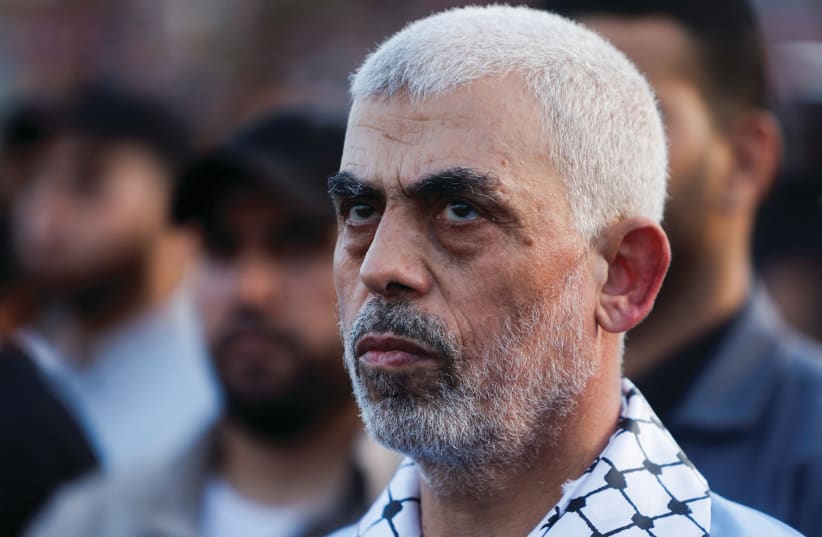
Israel will allow the exile of Hamas leader Yahya Sinwar from the Gaza Strip in exchange for the release of all remaining 136 hostages, NBC reported on Thursday, citing six Israeli officials and senior advisers.
According to the report, Israeli officials have floated the idea of allowing Sinwar to "leave like [Yasser] Arafat left Lebanon."
Arafat fled the Lebanese capital of Beirut in 1982 after an agreement between the US and the European government guaranteed his safe passage to Tunisia by boat. Now, an Israeli source told NBC, Sinwar could be set to make a similar exit from the Gaza Strip.
"We will allow it to happen as long as all of the hostages are released," NBC cited a senior adviser to Prime Minister Benjamin Netanyahu as saying.
Israel leaning toward exile of terror leaders from Gaza
Earlier this week, it was reported in Israeli media that Jerusalem and Washington have recently been discussing a plan for the exile of senior Hamas members as part of a wider ceasefire and hostage deal under discussion.

Officials in Netanyahu's inner circle stated in recent closed-door discussions that this is a very favorable option for Israel, as "the implication of the exile is the end of Hamas leadership."
There were reports in the past of a new proposal by mediators that included the exile of Hamas leaders from the Gaza Strip to a third country. According to the report, in exchange for this, Hamas would release all the Israeli captives it holds, but it would be done in stages until the withdrawal of IDF troops from Gaza.
Go to the full article >>Former Mossad Chief Yossi Cohen: Not assassinating Hamas leadership is a political decision
Yossi Cohen also expressed strong support for disengagement from Gaza, saying he was in favor of a total disengagement.
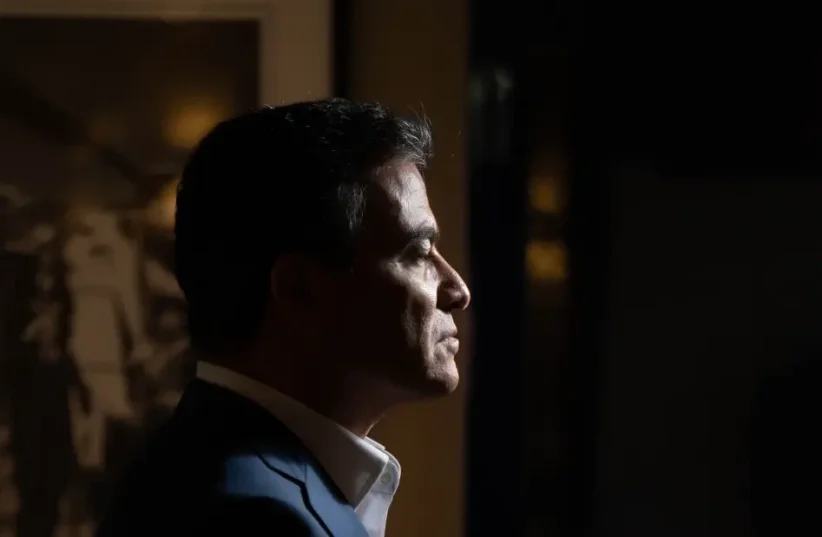
In an interview with KAN11 on Thursday the former head of Mossad Yossi Cohen said that whether to assassinate Hamas leadership abroad is a question of politics not a question of capability.
During the interview, Cohen was asked, "Why haven't they [the Hamas leadership] been eliminated?"
Answering, he said, "It's a political decision, every operation, according to foreign publications, of course, has three elements outside the State of Israel's control."
"First, the target - valent or not, and it is irrelevant if it is a physical target or another kind, second, whether the operational unit assigned to the task is capable of carrying out the mission and returning safely. Third, what will be the response?"
"Any discussion like this ends with a political decision only. The policy, if we want, can also change with regard to senior Hamas officials. The ability, according to foreign publications, exists."
Go to the full article >>Yahya Sinwar lost contact with Hamas leaders 'weeks ago' - report
"I assess beyond a doubt that he is in Khan Yunis - along with some of the remaining Hamas leadership," the officer said.
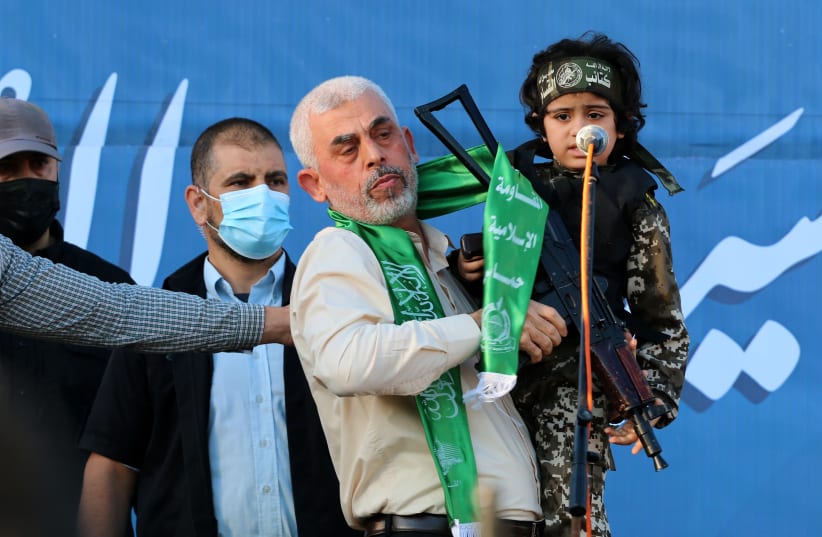
Hamas's leader in Gaza, Yahya Sinwar, lost contact with fellow terror leaders "weeks ago," KAN News reported on Thursday, and was not involved in Hamas's response to the hostage deal and ceasefire proposal.
Israeli forces are "peeling back" Hamas infrastructure in Khan Yunis, more than two months after entering the Gaza Strip's main southern city, and believe the terror group's Gaza chief is hiding there, a senior military officer told Reuters on Thursday.
However, multiple sources have stressed to the Jerusalem Post that Sinwar is hiding in the southern city of Rafah.
Progress in Khan Yunis has prompted Israel to describe Rafah, further to the south and abutting Gaza's border with Egypt, as next in line for a ground sweep by troops and tanks.
The majority of Gaza's 2.3 million people are now sheltering in the area since being displaced from elsewhere in four months of fighting, afraid they are next in the line of fire.
Go to the full article >>'Jihad must stop': Hamas founder's son talks UNRWA, support for Israel
"The people who wrote the Hamas charter are a group of lunatics," stated Mosab Hassan Yousef in the interview.
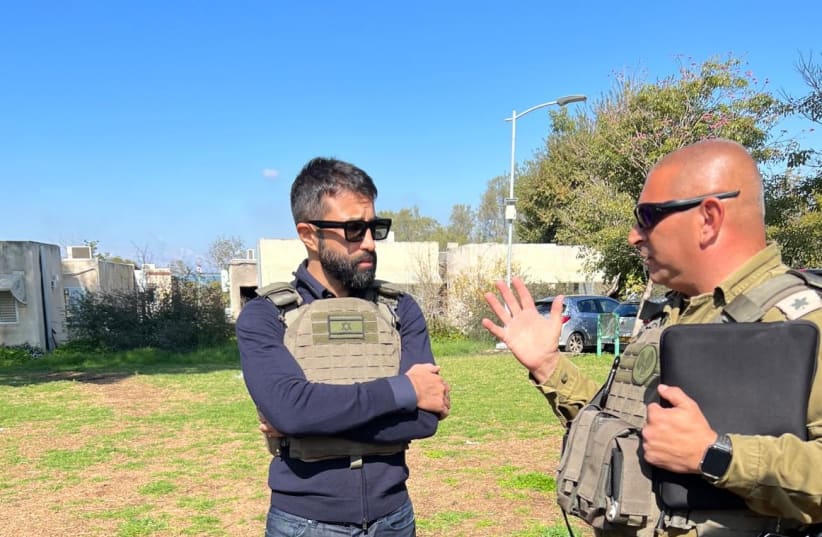
Son of Hamas co-founder Mosab Hassan Yousef, also known as 'the Green Prince', spoke up in support of Israel during an interview conducted with the spokesman of the Prime Minister's Office for Arab media.
The interview delved into personal topics, as Yousef discussed his childhood, describing his experiences growing up as the son of Hamas co-founder Sheikh Hassan Yousef.
Yousef also discussed his experience of studying at a UNRWA high school in the West Bank and explained that the education he received there was one where hatred towards Jews was encouraged.
T
Go to the full article >>Israel-Hamas War: What you need to know
- Hamas launched a massive attack on October 7, with thousands of terrorists infiltrating from the Gaza border and taking some 240 hostages into Gaza
- Over 1,200 Israelis and foreign nationals were murdered, including over 350 in the Re'im music festival and hundreds of Israeli civilians across Gaza border communities
- 136 hostages remain in Gaza, IDF says